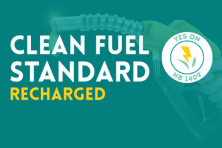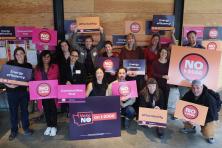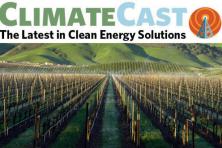Seattle, WA—On Thursday Jan. 20 Washington State’s House of Representatives acted on its first significant clean buildings legislation of 2022—HB 1767 Targeted Electrification sponsored by Rep. Alex Ramel. HB 1767 clarifies that public utilities can create targeted electrification programs, allowing all of their customers to access the benefits of programs and incentives to buy efficient heat pumps if they currently have a wood or fossil-fuel heating source. These programs would not only benefit the customer receiving the incentive through rebates and improved indoor air quality, but would also benefit the entire utility customer base by putting downward pressure on rates. Currently only customers of private electric utilities are able to get incentives to switch from fossil fuels like gas or oil to electric heating appliances; this bill increases customers' ability to choose heating sources by providing clarification that customers of public utilities can get the same benefits like other private utility customers in the state.
HB 1767 is part of a suite of bills aiming to address the emissions from our building sector, the fastest growing sector in Washington. The bill would provide an important source of funding for building electrification. Electrifying buildings for heating and cooling is a critical and foundational part of reducing emissions and meeting the state’s greenhouse gas reduction goals. Notably, low-income customers transitioning from wood stoves or gas heating to clean, electric heating would be able to benefit from the comprehensive bill payment assistance programs required by the 2019 Clean Energy Transformation Act. A companion bill SB 5666 sponsored by Sen. Marko Liias was heard by Senate Energy and Environment on Wednesday Jan 19. HB 1767 will next go to the Rules Committee before it moves to the House for a floor vote.
Addressing public health and building emissions through codes
The Washington State Building Code Council (SBCC) is currently considering the adoption of a stronger energy code that includes proposals to require high-efficiency electric space and water heating in new commercial and large multifamily (over four stories) buildings. The SBCC updates and improves building and energy codes only once every three years, making 2022 a unique opportunity to adopt the most climate-friendly statewide building energy code in the country. There is broad and diverse support building across the state for these code proposals. The SBCC will be hosting a set of public hearings during its energy code update process on February 25, 2022 (overflow meeting scheduled for March 11, 2022), and will accept public comment through March 11.
Accelerating building electrification and prioritizing public health go hand-in-hand. Particulate matter (PM2.5) pollution from commercial and residential buildings, primarily the result of gas appliances, is responsible for approximately 18,300 early deaths and $205 billion in health impacts per year nationwide. In Washington alone, outdoor emissions of nitrogen oxides (NOx) and volatile organic compounds (VOCs)—two of the pollutants associated with burning gas specifically—cost the state an estimated $278 million and $222 million in health impact costs respectively.
Momentum for clean and healthy buildings builds across the Northwest
Cities and counties in Washington have been increasingly looking to address building emissions to meet their own climate and GHG reduction goals, reduce maintenance and operational costs, and prioritize public health and safety. Momentum is building behind the nationwide building electrification movement and several local jurisdictions have taken action or are in progress among local governments throughout Washington.
- Earlier this month the Olympia City Council passed a resolution to electrify city-owned buildings including buildings projects that receive City funding.
- Last December, the Shoreline City Council approved an ordinance that eliminates most uses of fossil fuels for space heating and hot water in newly constructed commercial buildings, as well as multifamily buildings that are four stories or taller.
- The Seattle City Council adopted a policy similar to Shoreline’s in February 2021.
- The Bellingham City Council has been working to introduce its building electrification policy in early 2022.
- In September, King County Executive Dow Constantine submitted a proposed ordinance to the County Council that follows the standard set in Seattle and Shoreline by banning fossil fuel use for heating and hot water in new commercial developments and multifamily buildings that are four stories or taller. The council is set to take up the proposal early in 2022.
- Other entities like the City of Tacoma and Seattle Public Schools have also made commitments to phasing out gas in buildings.
###
ABOUT SHIFT ZERO
Shift Zero’s mission is to catalyze a just transition to zero carbon buildings for all in Washington State. We do this by advocating for policies and programs that maximize energy efficiency and eliminate emissions from buildings. As an alliance, we convene our members’ technical, policy, and advocacy expertise to identify solutions that can scale up to meet the urgency of the climate crisis. Collectively, we educate decisionmakers about how proven design approaches and building technologies can be leveraged to create affordable access to high-performance, resilient buildings. info@shiftzero.org





